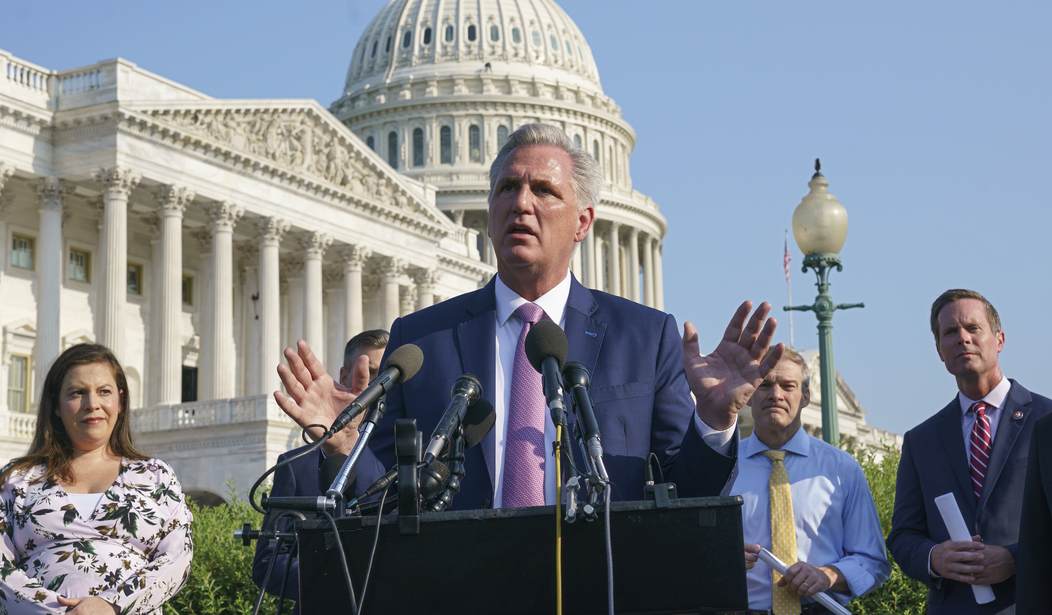House Minority Leader Rep. Kevin McCarthy has been quietly rounding up votes for his bid to become speaker of the House — if Republicans can claim a House majority from the 44 outstanding races to be decided. As of 10:00 a.m. Eastern time, Republicans have won 207 seats, according to the AP, with 218 needed for control.
It seems likely that Republicans win a majority, perhaps as early as today. But the GOP won’t have a leadership vote until next week at the earliest.
And by then, McCarthy’s bid to be speaker may be in some trouble. Last night, he sounded confident when asked if he had the votes to win the speaker’s job.
But McCarthy’s easy ascension to the speakership will be determined in large part by the size of a potential GOP majority. If McCarthy maintains a narrow majority, then the pro-Trump House Freedom Caucus could stand in the way of his leadership ambitions. CNN has not yet projected a Republican takeover of the chamber.
A source familiar with the House Freedom Caucus’ deliberations told CNN on Wednesday morning that there are around two dozen current and incoming members who are willing to vote against McCarthy if he doesn’t offer them concessions. They are actively discussing putting up a nominal challenger to face McCarthy in next week’s leadership elections in an effort to force the GOP leader to give them more influence in how the House operates, the source said.
McCarthy’s opponents will run into the same problems experienced by opponents of Senator Mitch McConnell for his Senate majority leader bid: no credible challenger that the opposition can unite behind. McCarthy and McConnell may be unpopular with certain factions in the Republican Party, but no one potential challenger stands out who could defeat either one of them.
But if, as expected, the Republican House majority is single digits, McCarthy is going to be forced to deal. He may have to agree to seat a select committee on Hunter Biden, for example, and fill the committee with Freedom Caucus members or grant committee assignments that he may not want to.
The Freedom Caucus’ strategy will come into sharper focus by week’s end as members weigh their options and as incoming lawmakers come to Washington for initial meetings. Rep. Matt Gaetz, an unabashed McCarthy critic who is not a member of the Freedom Caucus but is closely aligned with the group, also started calling members to talk strategy about the speaker’s race, according to a source familiar.
Among their demands: Making it easier for individual members to call for a vote ousting a sitting speaker, an idea that McCarthy has long rejected and one that was wielded over former Speaker John Boehner, a Republican from Ohio. The same source said that the Freedom Caucus wants more representation on the panel that makes selections on members’ committee assignments. They are also calling on GOP leaders to commit to slowing down the legislative process and give them more time to review even non-controversial bills.
Hardliners may also push for promises related to launching investigations and impeachment proceedings into President Joe Biden or members of his Cabinet.
Whoever becomes the next speaker of the House should not be envied.










Join the conversation as a VIP Member